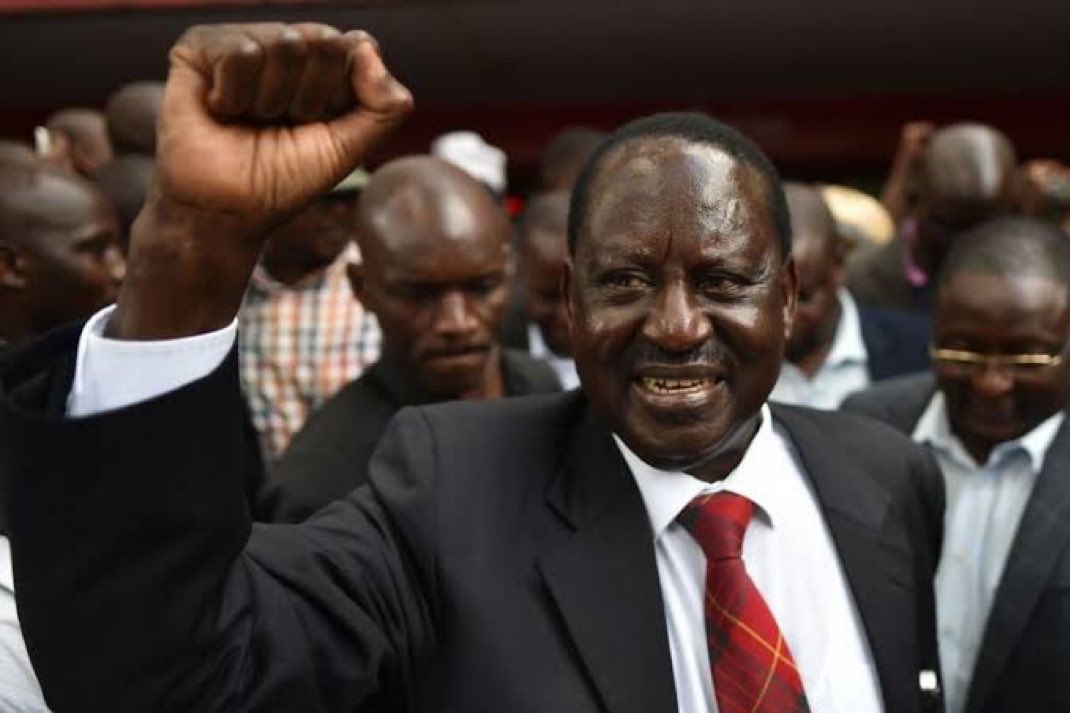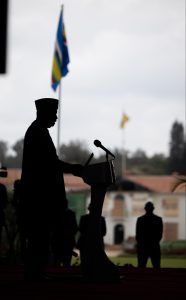Opinion
How Raila Became Kenya’s Father of Democracy and Devolution
Through the long decade of the 1980s, as Moi’s regime tightened its authoritarian grip, Odinga cycled in and out of prison, spending stretches in solitary confinement that would have silenced lesser men.

The news of Raila Odinga’s death comes as a moment of national reckoning for Kenya, a time to measure the distance traveled from the authoritarian state of the 1980s to the imperfect but functioning democracy of today.
That journey, more than any single politician’s career, belongs to Odinga.
He paid for it with nine years behind bars, endured it through five failed presidential bids, and shaped it through an obstinate belief that Kenya’s salvation lay not in the concentration of power but in its dispersal.
His story is inseparable from Kenya’s democratic awakening.
When Daniel arap Moi’s government crushed the 1982 coup attempt, Odinga was swept up in the dragnet, charged with treason, and thrown into detention without trial.
The experience could have broken him.
Instead, it forged a political identity rooted in resistance.
Through the long decade of the 1980s, as Moi’s regime tightened its authoritarian grip, Odinga cycled in and out of prison, spending stretches in solitary confinement that would have silenced lesser men.
He emerged in the early 1990s not bitter but emboldened, joining the Forum for the Restoration of Democracy to wage the battle that would crack open Kenya’s one-party state.
The return of multiparty politics in 1992 was only the beginning. Odinga understood what many of his contemporaries did not: that democracy without institutional reform was a hollow vessel.
The presidency remained an imperial office, swollen with unchecked authority and capable of suffocating any challenge to its dominance.
So he turned his attention to the harder, less glamorous work of constitutional change.
The path proved treacherous.
The Constitution of Kenya Review Commission, established in 2001, quickly became a battlefield of competing visions.
President Mwai Kibaki’s government produced the Wako Draft, a document that gutted the proposed devolution of power and preserved the presidency’s commanding heights.
Odinga campaigned against it with characteristic ferocity, and in 2005, Kenyan voters rejected it in a referendum that signaled the public’s hunger for genuine reform.
Then came the crucible of 2007. The disputed election and the violence that followed left over a thousand dead and hundreds of thousands displaced. Out of that trauma emerged the grand coalition government, an uneasy power-sharing arrangement that made Odinga prime minister and, more importantly, created the space for the constitutional breakthrough he had spent decades pursuing. The 2010 constitution, forged by a committee of experts and ratified by a decisive public vote, was his most enduring achievement. It created 47 county governments, stripping Nairobi of its monopoly on resources and decision-making. It imposed term limits, separated powers, and embedded a bill of rights that transformed the relationship between citizen and state.
Critics will point to Odinga’s inconsistencies, his tactical shifts, his periodic accommodations with the very power structures he claimed to oppose. They are not wrong. Politics is the art of the possible, and Odinga played it with all the calculation and compromise that entails. But what set him apart was his refusal to abandon the larger project. Even after his final electoral defeat, even as age and illness took their toll, he kept pushing. The Building Bridges Initiative, however flawed and ultimately unsuccessful, was another attempt to deepen devolution and address Kenya’s winner-take-all political culture. His work on the NADCO report in his final years focused on strengthening county governments and preventing the re-centralization of power.
What Odinga grasped, and what history will credit him for, is that Kenya’s ethnic and regional diversity demanded a political architecture capable of accommodating difference without devolving into conflict. Devolution was not merely an administrative reform. It was a mechanism for distributing the stakes of power, for ensuring that communities across the country had a voice in their own governance and a claim on national resources. In a nation where presidential elections had repeatedly threatened to tear the social fabric apart, this was no small insight.
The title “father of democracy and devolution” will sit uncomfortably with some. Democracy in Kenya remains fragile, devolution incomplete, and the temptations of authoritarianism ever-present. But titles are not claims of perfection. They are acknowledgments of contribution, of the distance between what was and what is. Odinga did not single-handedly deliver democracy to Kenya. He fought for it, suffered for it, and spent his political capital advancing it when others were content to consolidate their own power.
As Kenya buries him, the question is not whether he achieved everything he set out to do. He did not. The question is whether the institutions he helped build will endure. That answer rests with those who come after.
Kenya Insights allows guest blogging, if you want to be published on Kenya’s most authoritative and accurate blog, have an expose, news TIPS, story angles, human interest stories, drop us an email on [email protected] or via Telegram
-

 News2 weeks ago
News2 weeks agoTHE FIRM IN THE DOCK: How Kaplan and Stratton Became the Most Scrutinised Law Firm in Kenya
-

 Economy2 weeks ago
Economy2 weeks agoIran Demands Arrest, Prosecution Of Kenya’s Cup of Joe Director Director Over Sh2.6 Billion Tea Fraud
-

 Grapevine1 week ago
Grapevine1 week agoA UN Director Based in Nairobi Was Deep in an Intimate Friendship With Epstein — He Even Sent Her a Sex Toy
-

 Business2 weeks ago
Business2 weeks agoA Farm in Kenya’s Rift Valley Ignites a National Reckoning With Israeli Investment
-

 Business2 weeks ago
Business2 weeks agoKPC IPO Set To Flop Ahead Of Deadline, Here’s The Experts’ Take
-

 Politics2 weeks ago
Politics2 weeks agoPresident Ruto and Uhuru Reportedly Gets In A Heated Argument In A Closed-Door Meeting With Ethiopian PM Abiy Ahmed
-

 Investigations1 week ago
Investigations1 week agoHow Mexico Drug Lord’s Girlfriend Gave Him Away
-

 Business1 week ago
Business1 week agoSafaricom Faces Avalanche of Lawsuits Over Data Privacy as Acquitted Student Demands Sh200mn Compensation in 48 Hours


















